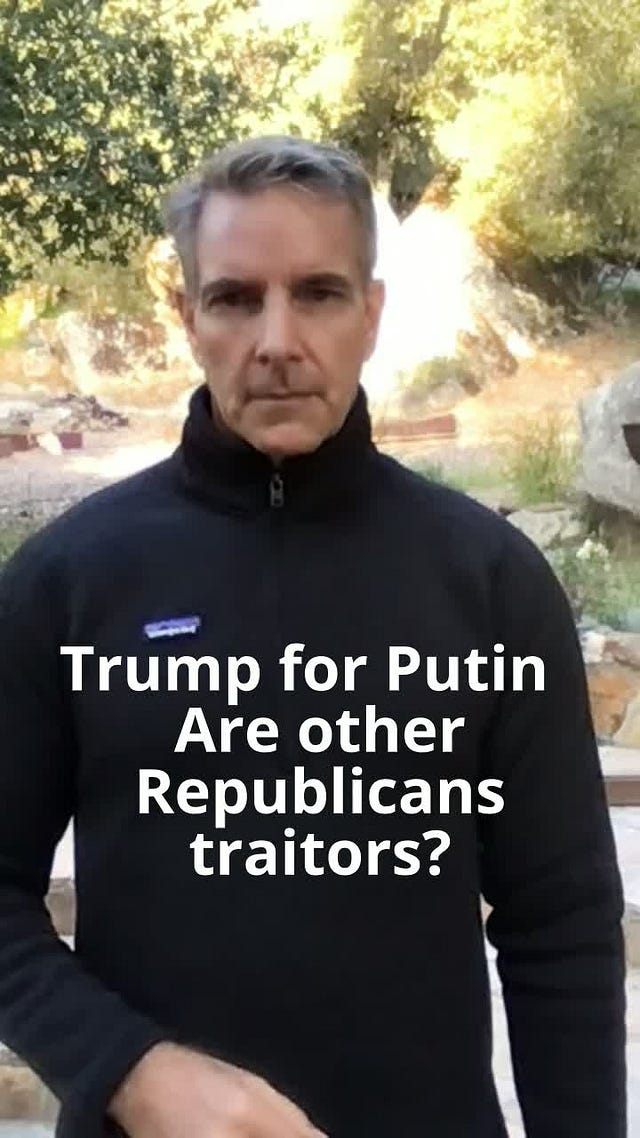Daily Brief: Europe Rises as America Hesitates
A cultural analysis of how Europe’s commitment to collective defense, long-term alliances, and quiet consensus is shaping a new power structure—just as the US begins to step back.

In today’s email
🇪🇺 Europe steps forward while the U.S. looks inward
🛡 NATO Chief Visits Ukraine—But Where Is the U.S.?
🤝 Europe Forms a "Coalition of the Willing" to Back Ukraine
💰 NATO Eyes Massive Defense Spending Increase
🧠 Why culture, not politics, explains the West’s divergence
📚 Book of the Week
📱 Cultural Perspective on TikTok
🗳️Poll
The US has dominated Europe since WWII. When America said, ‘Jump,’ Europe said, ‘How high?’ Europe has been America's first line of defense against Russian aggression. In return, America paid many bills and supplied troops, weapons, and guarantees.
But Trump surrendered to Putin, and power has shifted, and Europe is abruptly realizing it is on its own. Europe is stepping into the power vacuum, but not with bravado but rather with coalition-building, diplomacy, and long-term planning.
It’s easy to view this moment as just another shift in political alliances. But this is bigger. This is a cultural divergence, a split between two visions of Western power:
One is short-term, loud, and individualistic.
The other is long-term, quiet, and collective.
Cultural Dimensions
Three cultural dimensions explain the divide between Europe’s rising cohesion and America’s isolation:
European leaders value multilateralism, shared responsibility, and unity. In contrast, US policy increasingly centers on sovereignty, autonomy, and individual national interest. This is a difference between collectivism and individualism.
Europe is planning for the next generation, with commitments to defense, infrastructure, and rebuilding Ukraine. In the US, Trump debates this week's political polls. A difference in long-term orientation
NATO and EU leaders follow treaties, legal norms, and alliances. Under Trump, the US engages in deals based on personality, personalized diplomacy, and unpredictable commitments. A difference between universalism and particularism
Understanding these dimensions isn’t just academic—it gives you the insight to understand why Europe’s unity is growing and America’s influence is shrinking.
The News
🛡 NATO Chief Visits Ukraine Amid US Silence on Russian Missile Strike
Cultural Lens: Collectivism
Archetype: The Connector
NATO Secretary General Mark Rutte made a surprise visit to Odesa after a deadly Russian missile strike killed at least 34 in Sumy. The EU and the UK condemned the attack immediately. The US sided with Russia and declined to sign a joint G7 statement.
Geopolitics is defined by culture.
Collectivist cultures emphasize mutual obligation. The NATO visit wasn’t just symbolic; it was a reaffirmation of unity. Rutte’s presence said We’re with you. Trump said, We’re against you.
🤝 Europe Forms a "Coalition of the Willing" to Back Ukraine
Cultural Lens: Universalism
Archetype: The Bridge Builder
A 31-country alliance led by the U.K. and France is ready to act without the U.S., even against the US, if Trump fully commits to Putin. Known as the “Coalition of the Willing,” the group plans to offer Ukraine security guarantees and peacekeepers if a ceasefire is reached.
This is universalist thinking: shared principles, common rules, and institutions that outlast any one election cycle. It signals Europe’s willingness to act on its shared values and divorce itself from American self-interest.
💰 NATO Discusses Increasing Defense Spending Targets
Cultural Lens: Long-Term Orientation
Archetype: The Visionary
In a quiet but essential move, NATO leaders are expected to raise defense spending to 5% of GDP, adding civil defense, cyber resilience, and humanitarian infrastructure to the traditional 2% military goal.
This is long-term planning in action. While Washington looks to cut the State Department in half to “save money” during Trump’s term, Europe is building a broader, stronger model of security, one that sees the battlefield not just as a place of war but of climate, infrastructure, and ideology.
Why This Matters
We are watching the most significant shift in Western leadership since WWII.
Trump moves to isolate the US and strengthen Russia. Europe moves to unite and become independent from the US - a true world leader (?).
It’s a cultural rift coming to the forefront. The US has increasingly drifted to individualistic and short-term thinking and action. Europe has boldly moved toward collectivism (the EU, the Euro, the Schengen region) and long-term planning.
Cultural difference, not political division, is driving the fundamental power shift.
And understanding that shift is the only way to understand what comes next.
Understanding — Not Judging
Imagine if the roles were reversed.
What if North Korea bombed California, and NATO hesitated to respond?
What if the EU said, We’re negotiating with North Korea right now, so we can’t condemn the attack?
America would be outraged. They would call it cowardly and NATO traitors. America demands loyalty from its allies.
That’s how Ukraine feels. That’s how Europe feels.
Understanding the collectivist expectation of solidarity explains why NATO is stepping up while the US turns its back. They’re not just defending Ukraine; they’re defending themselves and their partners.
Book Recommendation for the Week
The Great Game by Peter Hopkirk provides a clear narrative of Russian expansion and its cultural roots, which explains Putin’s actions today.
More Cultural Perspective on TikTok
Do Trump’s leadership and actions qualify as treason?
Trump could have ended US power but didn’t - why?
America’s issues are not political - they are cultural, so should the US split up and become two culturally different countries?




